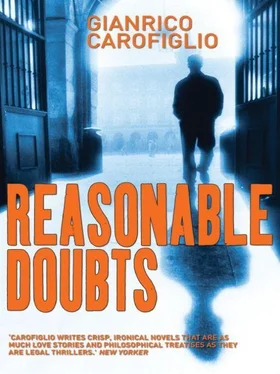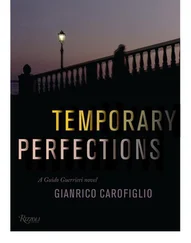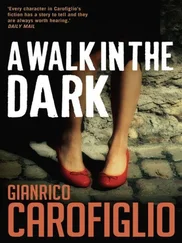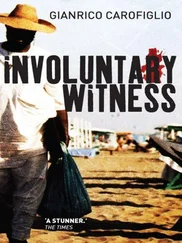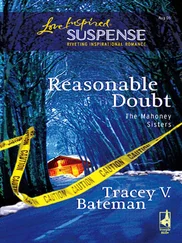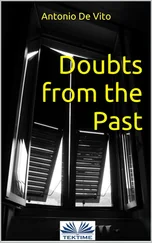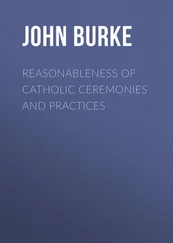Gianrico Carofiglio - Reasonable Doubts
Здесь есть возможность читать онлайн «Gianrico Carofiglio - Reasonable Doubts» весь текст электронной книги совершенно бесплатно (целиком полную версию без сокращений). В некоторых случаях можно слушать аудио, скачать через торрент в формате fb2 и присутствует краткое содержание. Жанр: Криминальный детектив, на английском языке. Описание произведения, (предисловие) а так же отзывы посетителей доступны на портале библиотеки ЛибКат.
- Название:Reasonable Doubts
- Автор:
- Жанр:
- Год:неизвестен
- ISBN:нет данных
- Рейтинг книги:5 / 5. Голосов: 1
-
Избранное:Добавить в избранное
- Отзывы:
-
Ваша оценка:
- 100
- 1
- 2
- 3
- 4
- 5
Reasonable Doubts: краткое содержание, описание и аннотация
Предлагаем к чтению аннотацию, описание, краткое содержание или предисловие (зависит от того, что написал сам автор книги «Reasonable Doubts»). Если вы не нашли необходимую информацию о книге — напишите в комментариях, мы постараемся отыскать её.
Reasonable Doubts — читать онлайн бесплатно полную книгу (весь текст) целиком
Ниже представлен текст книги, разбитый по страницам. Система сохранения места последней прочитанной страницы, позволяет с удобством читать онлайн бесплатно книгу «Reasonable Doubts», без необходимости каждый раз заново искать на чём Вы остановились. Поставьте закладку, и сможете в любой момент перейти на страницу, на которой закончили чтение.
Интервал:
Закладка:
Reasonable Doubts
Gianrico Carofiglio
0
When Margherita said she wanted to talk to me, I thought she was going to tell me she was expecting a baby.
It was late on a September afternoon. The sky had that dramatic end-of-summer light that gives a foretaste of the gloom and mystery of autumn. A good time to find out I’m going to be a father, I clearly remember thinking as we sat down on the terrace, with the low sun behind us.
“I’ve been offered a new job. A very good one. But if I accept, I have to go away for several months. Maybe a year.”
I looked at her, puzzled, like someone who either hasn’t quite heard, or hasn’t understood what he has heard. What did this offer of work have to do with the child we’d be having in a few months? I couldn’t figure it out.
She explained. A major American advertising agency – she even told me the name, but I forgot it immediately, maybe wasn’t even listening – had offered her the job of coordinating the campaign for the relaunch of an airline company. She mentioned a name, a very big name, and said it was a once-in-a-lifetime opportunity.
A once-in-a-lifetime opportunity. I let the words bounce around my head. They were painful, like the dull throb of a migraine. It suddenly seemed to me as if the meaning of everything revolved around some invisible point that I couldn’t locate or define.
“When did you get this offer?”
“In July. We were in contact a few times before then, but they made the formal offer in July.”
“Before we went on holiday,” I said, as if it was important.
But maybe it really was.
Then I realized. If she was telling me now, in September, two months after receiving the offer, and God knows how long after they first made contact, that meant she had already made up her mind, maybe even said yes.
“You’ve already said yes.”
“No. I wanted to tell you first.”
“You’ve made up your mind.”
She hesitated briefly – the only time she did – then nodded.
I’d been thinking she was about to tell me she was expecting a baby. I’d been thinking that at the age of forty-two my insipid life was suddenly, as if by magic, about to have a meaning, a reason. All because of that boy, or girl, I’d be able to teach a few things before I got too old.
I didn’t say that. I kept it all inside, like something you feel ashamed to even be thinking. Because you’re ashamed of your own weakness, your own fragility.
Instead, I asked her when she’d be leaving, and I must have seemed ridiculously calm, because she looked at me with a mixture of surprise and anxiety. From the street came the angry, prolonged snarl of a moped with a souped-up exhaust. I’d remember that sound, I thought. I’d hear it again every time that unexpected, pitiless scene came back into my mind.
She didn’t know when she’d be leaving. Ten days, two weeks. But she definitely had to be in Milan by the end of the month, and in New York by the middle of October.
So, I thought, she did know when she was leaving after all.
We were silent for two or three minutes. Or more.
“Don’t you want to know why?”
No, I didn’t want to know why. Or maybe I did, but I said no all the same. I didn’t want her to burden me with her reasons – which I was sure were excellent reasons – to ease her heart, or her soul, or wherever it is our guilt is located. I had my own guilt, and she had hers. I would think about it in the weeks and months to come, tormenting myself with that question and the memories and all the rest of it.
But for that tepid, pitiless September afternoon, we’d said enough.
I stood up and said I was going back to my apartment, or maybe going out.
“Guido, don’t do this to me. Say something, I beg you.”
But I didn’t say anything. I didn’t know what to say.
“I’m not going for ever. If you do this, you’ll make me feel like a worm.”
She had no sooner said these words than she regretted them. Maybe she saw the lost look on my face, or maybe she simply realized it wasn’t right. It may have been inevitable – she must have been thinking about it for a good many weeks – but it certainly wasn’t right.
She said some other things, too, her voice breaking. They sounded like apologies. Which is what they were.
And as she said these things I stopped listening to her, and the whole scene took on the unreal texture of a photographic negative, and that was the way it lodged itself in my memory.
1
I was waiting for the judges to enter the courtroom and my case to be heard, when I noticed a young woman sitting on the public benches. Oriental, but with something European about her features. She looked beautiful and slightly bewildered.
I wondered who she was there for, and several times I pretended to search for something on my bench so that I could turn and look at her.
I had the impression she was watching me, which was of course highly unlikely. A girl like that would never have given me the time of day, I thought, not even in the good old days. Then I thought, when the hell were the good old days anyway?
At least ten minutes passed like this. Then at last the judges emerged from their chamber, the hearing started, and I stopped having these stupid thoughts.
It was a trial for armed robbery and we were due to hear the principal witness: the victim. A jewel salesman who’d had his sample case stolen, along with the unused gun he carried with him.
Two of the robbers had been arrested soon after the crime, with the booty still in their car. They had opted for the fast-track procedure and had already received relatively light sentences. My client was accused of being the lookout. The victim had recognized him from a photograph album at police headquarters. The trial was being held in absentia because my client – Signor Albanese, amateur footballer and professional criminal – had run away when he had found out they were looking for him. He’d only just finished a prison term and had no desire to go back inside. And he said he had nothing to do with this case.
The assistant prosecutor’s examination of the witness didn’t take long. The jewel salesman looked very determined and not at all intimidated by his surroundings. He confirmed everything he had already told the police, confirmed that he had recognized my client from a photograph, the photograph was admitted in evidence, and the presiding judge asked me to proceed with my cross-examination.
“You have stated that the robbery was committed by three men. Two of them physically snatched the sample case and the gun from you, while the third was standing some distance away and seemed to be the lookout. Is that correct?’
“Yes. The third man was on the corner, but then the three of them all left together.”
“And is it also correct that the third man, the one you later identified from a photograph, was standing about twenty yards away from you?”
“Fifteen or twenty yards.”
“I see. Now I’d like you to tell us briefly how you came to recognize the photo at police headquarters, the day after the robbery.”
“They gave me some albums to look at and one of them had the photo of the man in it.”
“Had you ever seen him before? I mean, before the robbery?”
“No. But when I saw his face in the album, I immediately thought: I know this man. And then I realized it was the one who’d been the lookout.”
“Do you play football?”
“I’m sorry?”
“I asked you if you play football.”
The presiding judge asked me what relevance this question had to the matter in hand. I assured him that everything would become clear in the next few minutes and he told me to go ahead.
Читать дальшеИнтервал:
Закладка:
Похожие книги на «Reasonable Doubts»
Представляем Вашему вниманию похожие книги на «Reasonable Doubts» списком для выбора. Мы отобрали схожую по названию и смыслу литературу в надежде предоставить читателям больше вариантов отыскать новые, интересные, ещё непрочитанные произведения.
Обсуждение, отзывы о книге «Reasonable Doubts» и просто собственные мнения читателей. Оставьте ваши комментарии, напишите, что Вы думаете о произведении, его смысле или главных героях. Укажите что конкретно понравилось, а что нет, и почему Вы так считаете.
